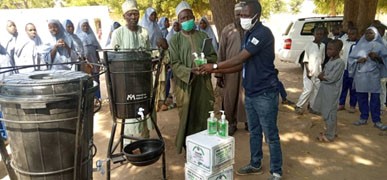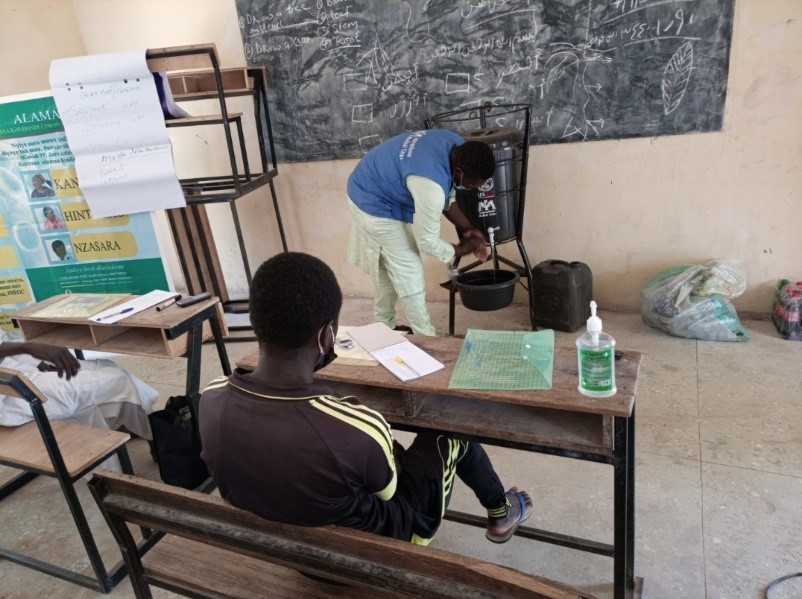International Medical Corps Helps Address Urgent Needs for COVID-19 Response in Devastated Northeast Nigeria with Grant Support from the Astellas Global Health Foundation
In response to the COVID-19 pandemic, the Astellas Global Health Foundation has pursued opportunities to support multiple non-governmental organizations working to combat the virus affecting those with extremely limited access to health resources in some the world’s most vulnerable communities.
This includes northeast Nigeria, which is now the site of Africa’s largest humanitarian emergency, with more than 10 million people estimated to be in urgent need of humanitarian assistance amid a conflict that has ravaged the area for more than a decade. With many people living in crowded camps after being forced to flee their homes and facing significant access to health challenges, preventing the spread of COVID-19 has been even more challenging.

Global humanitarian and relief organization International Medical Corps has been working in Nigeria since 2013 to deliver programs focused on health, nutrition, water and sanitation, gender-based violence prevention, and food security. With teams already established in the area, when the pandemic struck the organization was able to quickly adapt its operations and help vulnerable local communities respond to COVID-19.
A $400,000 grant from the Astellas Global Health Foundation received in 2020 was provided with the intention to help International Medical Corps reduce morbidity and mortality due to COVID-19 through prevention, detection and education efforts with a primary health center that reaches more than 67,000 people in northeast Nigeria’s Borno State.
“The Foundation is humbled to fund International Medical Corps’ heroic work in this underserved region that continues to face profound access to health challenges and dire need for resources,” said Moyra Knight, president of the Astellas Global Health Foundation. “We look forward to continuing to support important efforts like these that can make a direct and meaningful impact for other vulnerable and hard-to-reach communities around the world.”

As a result of the Foundation’s grant, International Medical Corps trained 66 people to date, including health center staff, community health workers and community leaders, about COVID-19 and other infection prevention and control measures. These trained community health workers have been able to reach nearly 2,600 people so far with messaging on how to prevent the spread of COVID-19 with outreach continuing. Additionally, the organization helped the primary health center screen more than 600 people for COVID-19, provided the facility with handwashing stations, installed waste bins, and trained 20 staff members on safe waste management.
“In our work representing one of the most vulnerable areas in Africa, we have delivered sanitation supplies and set up additional handwashing stations in camps for displaced residents,” said Dr. Ekene Umeh, Health Manager, International Medical Corps - Nigeria. “We are also training community volunteers and healthcare workers, assisting in screening patients for COVID-19, and helping to spread the word in communities about safety precautions people can take to help prevent the spread of the virus and where to seek help if needed.”
The work continues as International Medical Corps conducts more COVID-19 education campaigns, works with staff at the primary health center, and distributes needed protective equipment resources for additional support.
Learn more about the Foundation’s efforts to support organizations responding to the COVID-19 pandemic.
